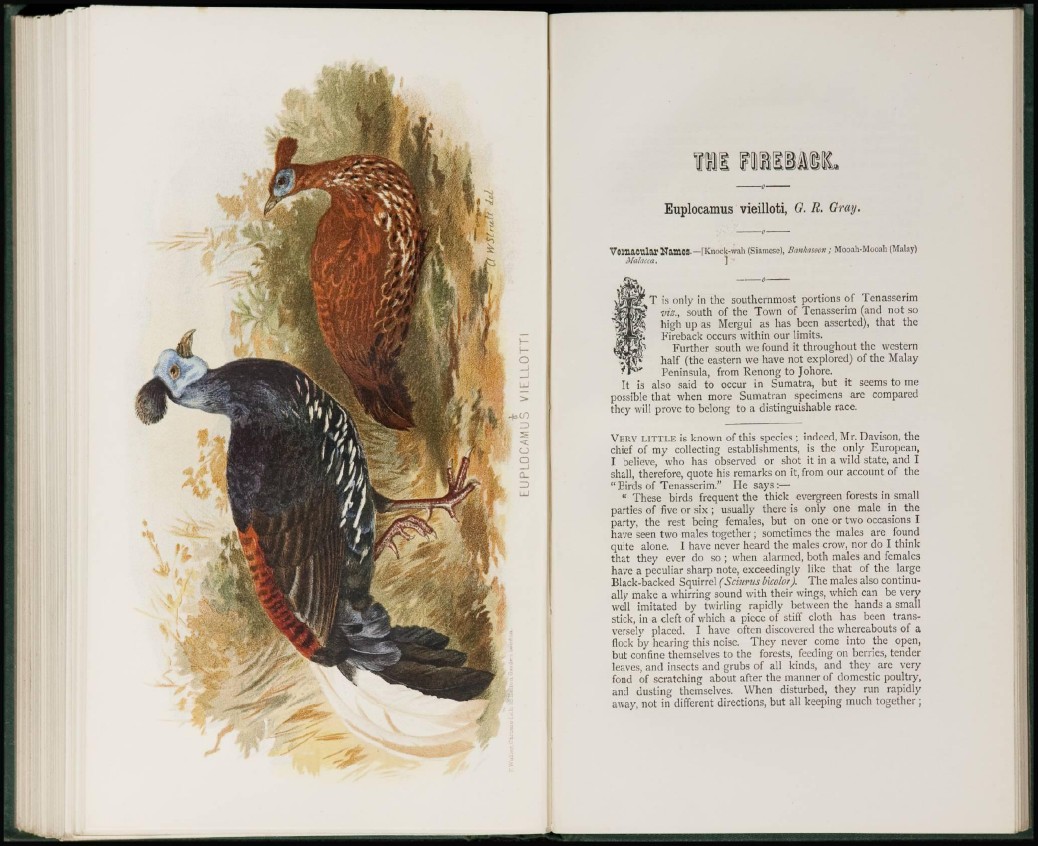
mi fmmmiL
Euplocamus vieilloti, G. R. Gray.
Vernacular Names-— [Knock-vah (Siamese), Bankasocn ; Mooah-Mooali (Malay)
Malacca. ]
T is only in the southernmost portions of Tenasserim
viz., south of t h e Town of Tenasserim (and not so
high up as Mergui as has been asserted), that the
Fireback occurs within our limits.
Further south we found it throughout the western
half (the eastern we have not explored) of the Malay
Peninsula, from Renong to Johore.
It is also said to occur in Sumatra, but it seems to me
possible that when more Sumatran specimens are compared
they will prove to belong to a distinguishable race.
VERY LITTLE is known of this species ; indeed, Mr. Davison, the
chief of my collecting establishments, is the only European,
I believe, who has observed or shot it in a wild state, and I
shall, therefore, quote his remarks on it, from our account of the
"Birds of Tenasserim." He says:—
" These birds frequent the thick evergreen forests in small
parties of five or six ; usually there is only one male in the
party, the rest being females, but on one or two occasions I
have seen two males together ; sometimes the males are found
quite alone. I have never heard the males crow, nor do I think
that they ever do so ; when alarmed, both males and females
have a peculiar sharp note, exceedingly like that of t h e large
Black-backed Squirrel (Sciurus bicolor). The males also continually
make a whirring sound with their wings, which can be very
well imitated by twirling rapidly between the hands a small
stick, in a cleft of which a piece of stiff cloth has been transversely
placed. I have often discovered the whereabouts of a
flock by hearing this noise. They never come into the open,
but confine themselves to the forests, feeding on berries, tender
leaves, and insects and grubs of all kinds, and they are very
fond of scratching about after the manner of domestic poultry,
and dusting themselves. When disturbed, they run rapidly
away, not in different directions, but all keeping much together;